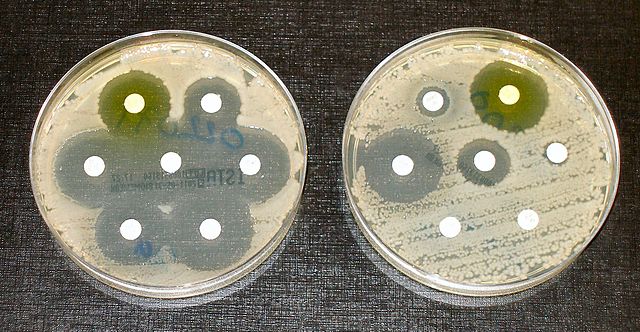Health
WHO raises alarm over high level of antibiotic resistance worldwide

(Photo By Dr Graham Beards at en.
wikipedia, CC BY-SA 4.0)” width=”640″ height=”332″ /> FILE: In a statement, director of WHO’s Antimicrobial Resistance (AMR) Secretariat, Dr. Marc Sprenger, disclosed that their new Global Antimicrobial Surveillance System (GLASS) showed a widespread occurrence of antibiotic resistance among 500,000 people with suspected bacterial infections across 22 countries. (Photo By Dr Graham Beards at en.wikipedia, CC BY-SA 4.0)
MANILA — The World Health Organization (WHO) has expressed alarm over the high levels of antibiotic resistance to a number of serious bacterial infections found in high- and low-income countries.
In a statement, director of WHO’s Antimicrobial Resistance (AMR) Secretariat, Dr. Marc Sprenger, disclosed that their new Global Antimicrobial Surveillance System (GLASS) showed a widespread occurrence of antibiotic resistance among 500,000 people with suspected bacterial infections across 22 countries.
“The report confirms the serious situation of antibiotic resistance worldwide,” Sprenger said, citing the Escherichia coli, Klebsiella pneumoniae, Staphylococcus aureus, and Streptococcus pneumonia as the most commonly reported resistant bacteria.
“Some of the world’s most common – and potentially most dangerous – infections are proving drug-resistant. And most worrying of all, pathogens don’t respect national borders. That’s why WHO is encouraging all countries to set up good surveillance systems for detecting drug resistance that can provide data to this global system,” he added.
Among patients with suspected bloodstream infection, the WHO said the proportion that had bacteria resistant to at least one of the most commonly used antibiotics ranged from zero to 82 percent.
Resistance to penicillin, the medicine used for decades worldwide to treat pneumonia, ranged from zero to 51 percent among countries.
The WHO also said that 8 percent to 65 percent of E. coli associated with urinary tract infections presented resistance to ciprofloxacin, an antibiotic commonly used to treat this condition.
A total of 52 countries (25 high-income, 20 middle-income, and seven low-income countries) are enrolled in WHO’s Global Antimicrobial Surveillance System. For the first report, 40 countries provided information about their national surveillance systems and 22 countries provided data on levels of antibiotic resistance.
“The report is a vital first step towards improving our understanding of the extent of antimicrobial resistance. Surveillance is in its infancy, but it is vital to develop it if we are to anticipate and tackle one of the biggest threats to global public health,” says Dr. Carmem Pessoa-Silva, who coordinates the new surveillance system at WHO.
The WHO has been sounding its AMR concerns since 2014 when it launched a global surveillance system on antibiotic resistance. Given the growing AMR problem, the WHO is again urging all countries to set up good surveillance systems in detecting drug resistance.
GLASS will eventually incorporate information from other surveillance systems related to antimicrobial resistance in humans, such as in the food chain, monitoring of antimicrobial consumption, targeted surveillance projects, and other related data. (WHO/Photo courtesy of WHO)





















